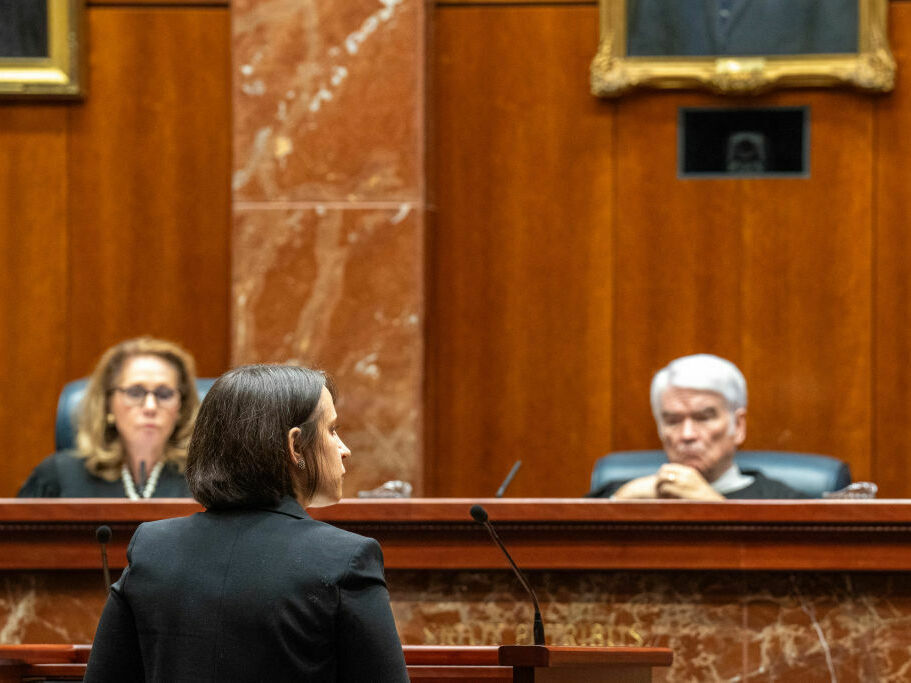
Center for Reproductive Rights attorney Molly Duane speaks in the court room at the Texas Supreme Court in Austin, Texas, last month on behalf of 22 women who were denied abortions even though they had serious complications with their pregnancies that were in some cases life-threatening. Suzanne Cordeiro/AFP via Getty Images hide caption

Center for Reproductive Rights attorney Molly Duane speaks in the court room at the Texas Supreme Court in Austin, Texas, last month on behalf of 22 women who were denied abortions even though they had serious complications with their pregnancies that were in some cases life-threatening.
Suzanne Cordeiro/AFP via Getty ImagesNearly two years into Roe v. Wade being overturned, pregnant people continue to have a hard time accessing abortion and miscarriage care. This year saw the addition of new restrictive abortion laws in some states and protection of existing abortion laws in others.
What does this mean for abortion care in 2024, and how might all of this affect the 2024 elections?
NPR's Juana Summers digs into these questions with health policy reporter Selena Simmons-Duffin and national political correspondent Sarah McCammon.
Email us at
This episode was produced by Brianna Scott. It was edited by Diane Webber and Courtney Dorning.

 Live Radio
Live Radio